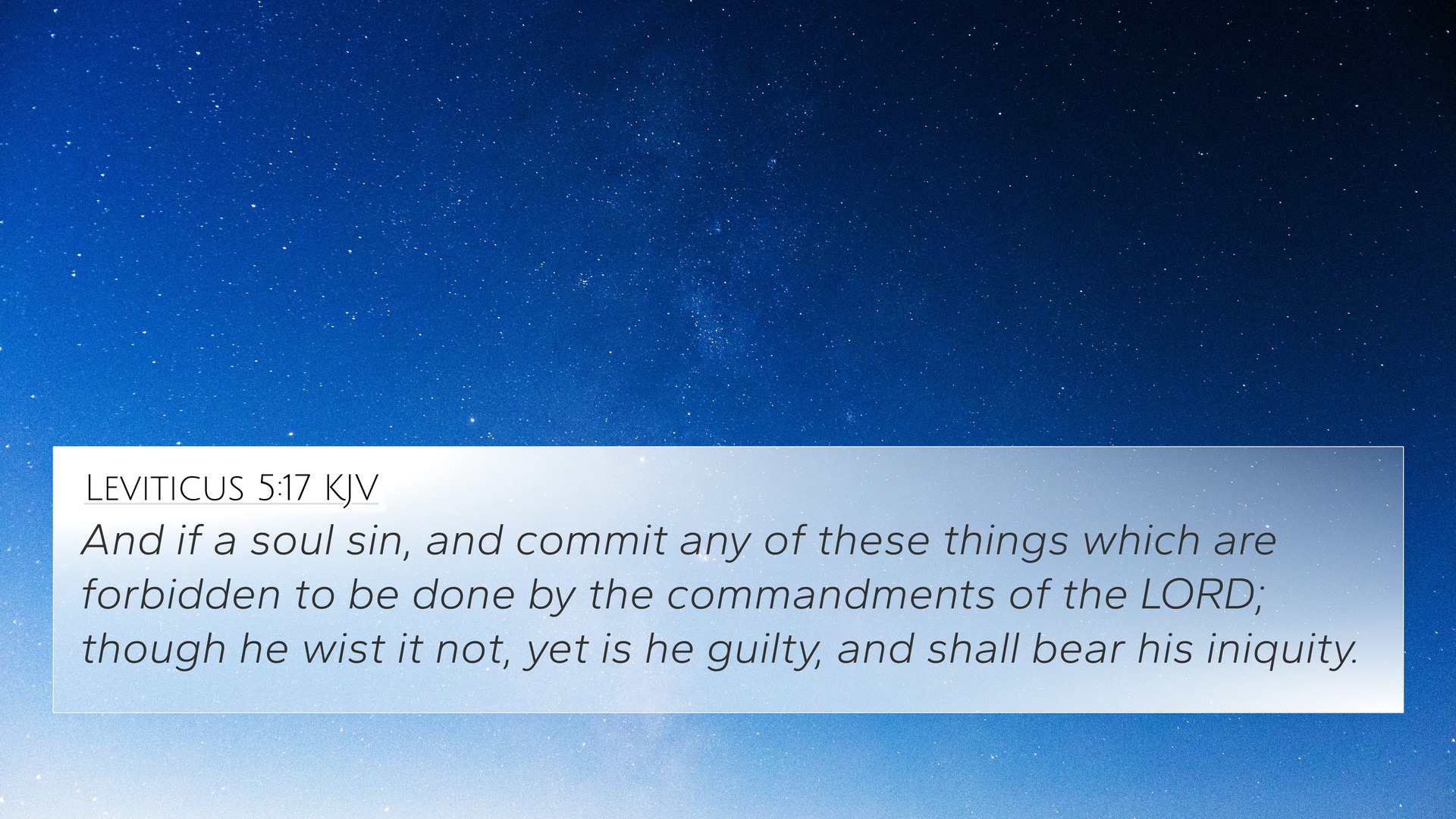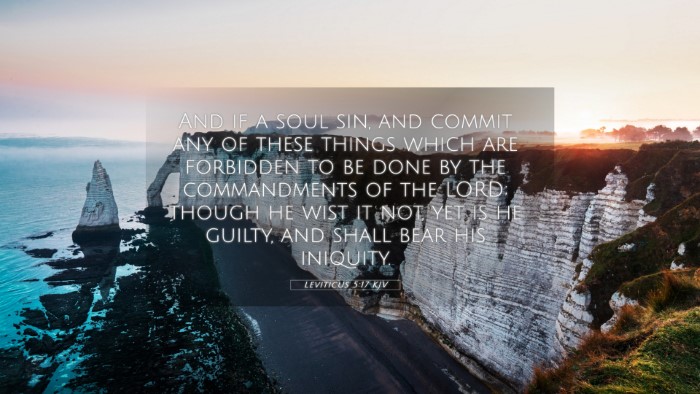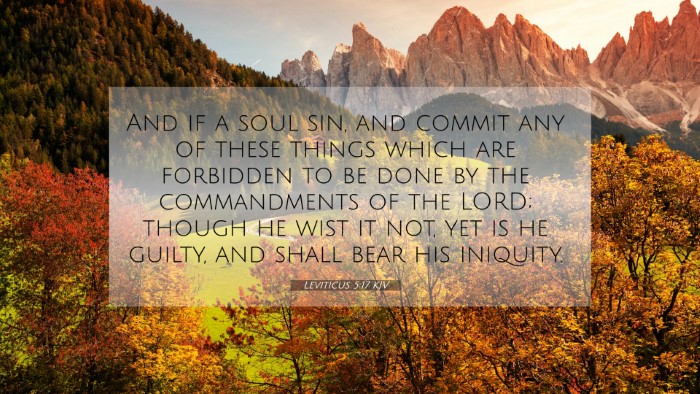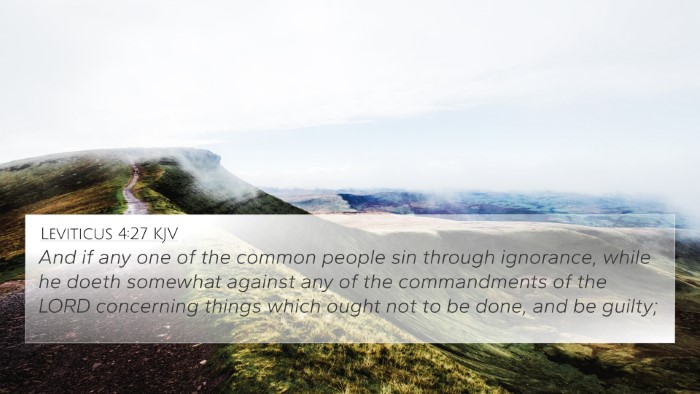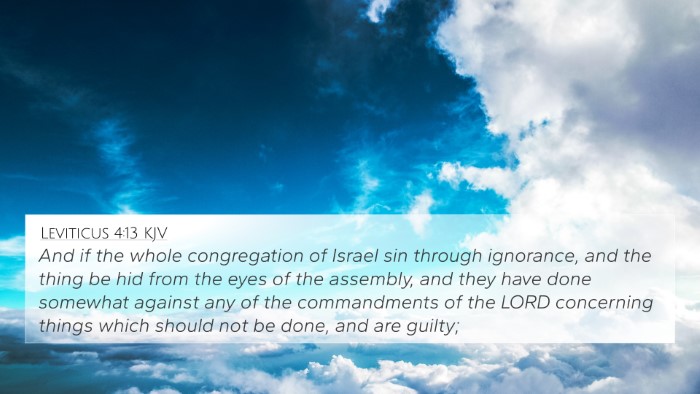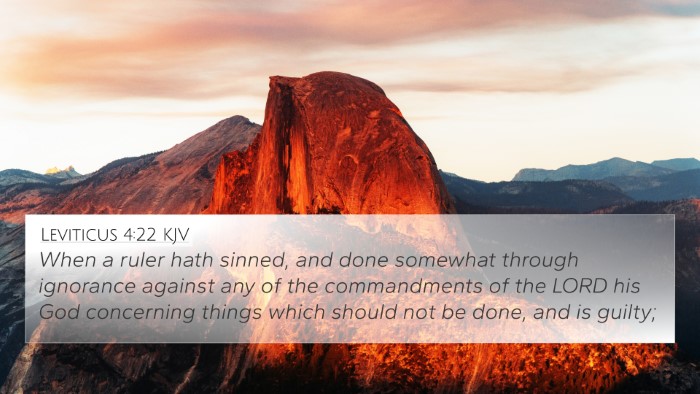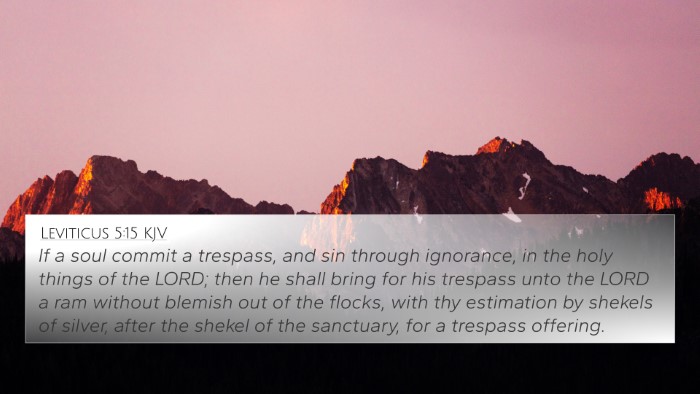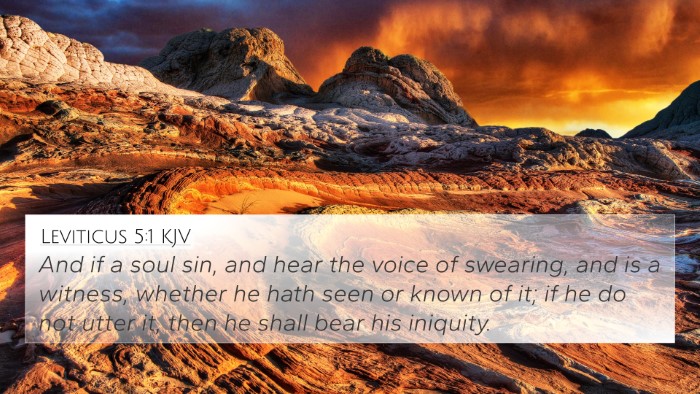Understanding Leviticus 5:17
Leviticus 5:17 states, "If anyone sins and does what is forbidden in any of the Lord's commands, even though they do not know it, they are guilty and will be held responsible." This verse addresses unintentional sins and their implications in the life of an Israelite.
Verse Interpretation and Insights
Commentators, including Matthew Henry, Albert Barnes, and Adam Clarke, provide significant insights into the meaning of this verse:
-
Matthew Henry:
Henry emphasizes that even unintentional sins carry weight in the eyes of God, suggesting that knowledge of God’s laws is essential. Ignorance does not exempt one from sin, recognizing a moral responsibility to seek understanding of God's commands.
-
Albert Barnes:
Barnes discusses the nature of unintentional sins and highlights that God requires accountability, stating that unintentional violations are still seen as offenses. This underscores the importance of living in accordance with divine law and the necessity for atonement for such sins.
-
Adam Clarke:
Clarke remarks on the gravity of sin, even when performed unknowingly. He posits that God’s commandments are to be revered, and the notion of inadvertent wrongdoing underlines a deeper call for vigilance and discernment in one’s moral conduct.
Connections to Other Bible Verses
Leviticus 5:17 resonates deeply with several other scriptures that help illuminate its themes:
- James 4:17: "If anyone, then, knows the good they ought to do and doesn’t do it, it is sin for them." This verse parallels the idea that failure to align with God's expectations can incur guilt.
- Numbers 15:22-31: Discusses the difference between intentional and unintentional sins and how each is treated under Israel's law.
- 1 John 1:8: "If we claim to be without sin, we deceive ourselves and the truth is not in us." This conveys the necessity of recognizing our shortcomings.
- Romans 14:23: "But whoever has doubts is condemned if they eat, because their eating is not from faith; and everything that does not come from faith is sin." This emphasizes the importance of conscience in relation to sin.
- Hebrews 10:26: Cautions against willful sin after receiving knowledge of the truth, reinforcing the seriousness of sin.
- Leviticus 4:2: Details the offering for unintentional sins, reflecting God's provision for atonement.
- Exodus 20:1-17: Lists the Ten Commandments, grounding the commandments that are violated.
- Luke 12:47-48: Speaks of varying degrees of punishment based on knowledge and intent, echoing the theme of accountability in sin.
- Romans 3:23: "For all have sinned and fall short of the glory of God," which underlines the universality of sin.
- Micah 6:8: Explains what the Lord requires of His people, emphasizing justice, mercy, and humility, which are essential in avoiding sin.
Thematic Bible Verse Connections
Leviticus 5:17 also connects with broader themes throughout scripture:
-
Accountability:
Christians are urged to be aware of and respond to their spiritual responsibilities, paralleling Romans 14:12 which speaks of personal accountability before God.
-
Understanding of God’s Law:
Much of the Old Testament focuses on understanding and adhering to God's statutes, encouraging study and meditation on His word (Psalm 119:11).
-
Grace and Atonement:
The necessity of atonement for unintended sins prefigures Christ’s ultimate grace. This theme culminates in Hebrews 10:10, which speaks of the sacrifice of Christ as the final atonement.
Cross-Reference Tools and Methods
When studying the Bible, employing cross-referencing tools can enhance understanding:
- Bible Concordance: A tool to find specific verses and their meanings.
- Bible Cross-reference Guide: Identifies related verses and themes across scripture.
- Cross-reference Bible Study: Methods to systematically explore connections between verses.
- Bible Chain References: A method to link verses thematically.
Conclusion
Leviticus 5:17 serves as a vital reminder of the significance of God's laws and the need for personal integrity in upholding these commands. This verse contextualizes the importance of understanding sin, accountability, and the necessity of atonement. The connections made through cross-referencing enhance our grasp of its implications and the overarching narrative of redemption throughout the Bible.
